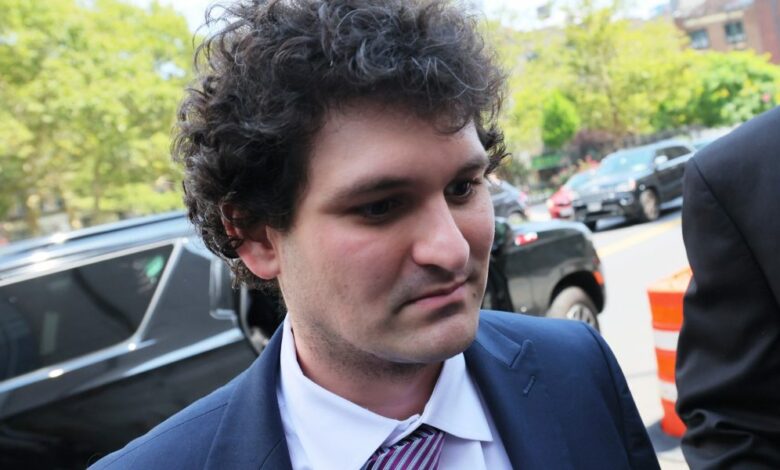Sam Bankman Fried’s mother asked for a lenient sentence for her son: ‘He has never felt happiness or pleasure in his life and does not think he is capable of feeling it’


Only Sam Bankman-Fried knows exactly why he committed the crimes that landed him a 25-year prison sentence, but a letter from his mom to the judge that oversaw his case casts some light on his enigmatic personality and motivations.
As his mother, former Stanford law professor Barbara Fried, explains in the six-page letter, Bankman-Fried was a reserved and quiet child who required little attention. When he was growing up, the former FTX CEO preferred to focus more on the needs of others and was seemingly indifferent to his own, according to Fried.
Fried describes how SBF was often the sounding board for classmates whose parents were going through divorce or who had other problems, for some of which he asked his parents’ counsel.
Through intellectual curiosity, she writes, Bankman-Fried later discovered utilitarianism, a philosophy that insists actions are right if they benefit the greatest number of people. It was a doctrine that would considerably influence his life, and ultimately, his decision to start the crypto exchange he built into one of the world’s largest—before its spectacular collapse.
“The premises of utilitarianism obviously resonated strongly with what Sam had already come to believe on his own, but gave him a more systematic way to think about the problem and connected him to an online community of like-minded people deeply engaged in the same intellectual and moral journey,” Fried writes.
The “like-minded people” he would later associate with mostly belonged to a philanthropic movement called effective altruism that adheres to the principles of utilitarianism. Its members have lofty ambitions of worldwide charitable giving, but have also been accused of being morally bankrupt and unusually insular, backed by some of the richest in Silicon Valley. The Centre for Effective Altruism and its members later distanced themselves from SBF following his company’s implosion.
The impact of his supposed utilitarian beliefs led him to become vegetarian and later vegan, wrote Fried. His concern for the treatment of animals determined him to remain vegan even while in prison.
“He has lost 30 pounds since he was remanded to prison in August. He has never once complained to us or, as far as I know, the prison authorities. He has just made do, because it was important enough to him to do so,” she wrote.
When he was deciding on a career, she says he chose to pursue a high-paying job at quantitative trading firm Jane Street so he could make even more money to later give away.
“In his three years there, he gave away over half of his earnings. Characteristically, he never told us–a friend of his did,” Fried wrote. “He has never been interested in praise, and has always deflected it.”
When SBF started his crypto trading firm, Alameda Research, he cited utilitarian thinking as his motivation and used it to recruit others with similar ideals. Yet, instead of donating Alameda’s profits to charity, they used them to fund FTX, which would later make SBF a billionaire, and bring him one step closer to charitable ambitions he never fully realized, and some might argue, he never actually had in the first place.
“I wanted to get rich, not because I like money but because I wanted to give that money to charity,” he said in an interview from 2022.
In her letter, Fried did not express remorse for the people who may have lost their life savings when her son’s company fell apart but did lament that FTX’s failure meant SBF’s charitable projects would be cut short.
“The vaccine research project he sponsored was probably the highest Impact gift he made in 2022, but there were many others, and many more promising projects in the works with potentially huge impact on the lives of the least well off that were cut off by the FTX implosion,” she wrote.
In the aftermath of FTX’s bankruptcy, SBF shared with his parents that his depression left him unable to feel happiness.
“We knew about his depression, but he described something deeper and sadder: that he has never felt happiness or pleasure in his Iife and does not think he is capable of feeling it,” she wrote.
Fried pleaded with the judge in her letter to give SBF a lenient sentence and not lock him away for decades as the prosecution wanted. Putting him in prison for so long would “destroy Sam as surely as would hanging him,” she reasoned.
“If allowed to resume his life, he would do the only thing he has ever cared about: devote the remainder of his natural life to leaving the world a better place than he found it,” Fried wrote.
Despite his mother’s kind words, some of the people who knew SBF best, his FTX colleagues (and roommates), contradict her account of him as a selfless individual concerned about the welfare of the world as well as his friends.
At his trial, SBF’s FTX cofounder, the company’s head of engineering, and his ex-girlfriend and Alameda Research CEO testified that SBF directed them to commit crimes and falsify data.
Alameda Research CEO Caroline Ellison said SBF took his utilitarian dogma to an extreme and used it to justify bad actions, adding during his trial that “rules like ‘don’t lie’ or ‘don’t steal’ didn’t fit into that framework.”
In November, Bankman-Fried was found guilty of seven criminal counts that included wire fraud and money laundering. Although his friends and family had pleaded for a sentence of just six-and-a-half years or less citing his good character, last week, a federal judge sentenced him to 25 years behind bars. His mother, now 72, may not live to see him released.
Source link




